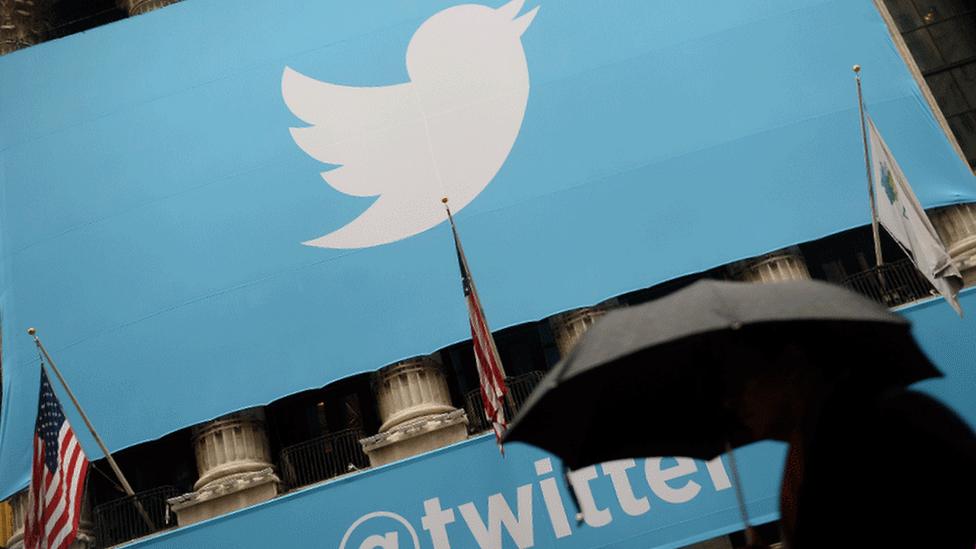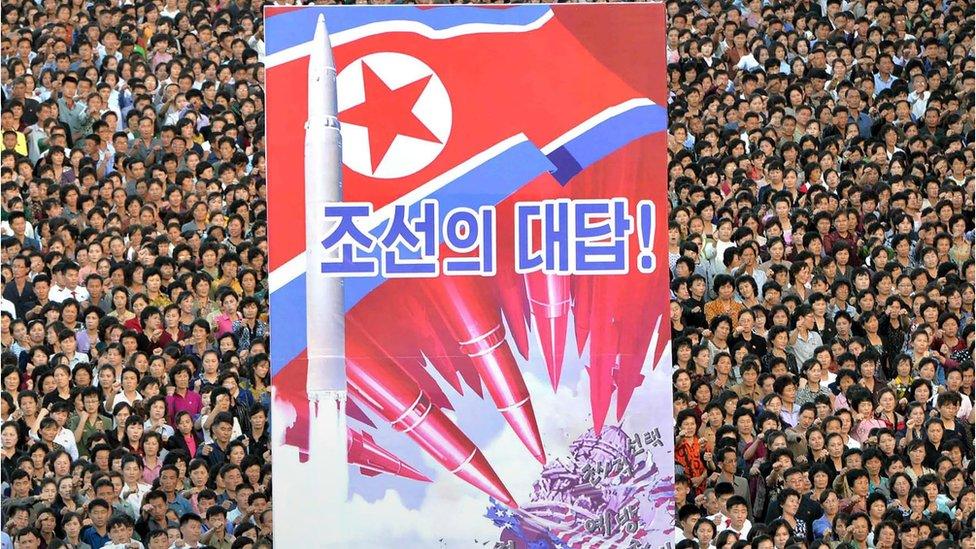No ban for Trump's North Korea tweet
- Published

Twitter said it would update its rules soon
Twitter has been forced to clarify why it does not believe a tweet from President Donald Trump violated its terms and conditions.
In the tweet in question, President Trump appeared to directly threaten North Korea with destruction.
Many argued that the statement was in breach of Twitter's terms, which forbid violent threats, and should be removed.
Twitter said the tweet remained online because it was "newsworthy".
The tweet at the centre of the row read:
Allow X content?
This article contains content provided by X. We ask for your permission before anything is loaded, as they may be using cookies and other technologies. You may want to read X’s cookie policy, external and privacy policy, external before accepting. To view this content choose ‘accept and continue’.
In a series of tweets aimed to deflect the ensuing row among users, Twitter sought to clarify its rules: "Some of you have been asking why we haven't taken down the tweet.
"We hold all accounts to the same rules and consider a number of factors when assessing whether tweets violate our rules.
"Among the considerations is 'newsworthiness' and whether a tweet is of public interest. This has long been internal policy and we'll soon update our public-facing rules to reflect it."
Current policy states that users "may not make threats of violence or promote violence, including threatening or promoting terrorism".
North Korea's foreign minister has accused President Trump of declaring war on his country via Twitter but Washington has said that such an assertion is "absurd".
Past changes to Twitter's rules include:
•2009-10: Twitter places limits on parody accounts, saying it will take down any that a "reasonable person" would mistake as real
•2013: The company issues "Targeted Abuse" guidelines in response to a wave of high-profile misogynistic harassment
•2015: Twitter bans threatening terrorism and "promot[ing] violence against others… on the basis of race, ethnicity, national origin, religion, sexual orientation, gender, gender identity, age, or disability".
- Published26 September 2017

- Published25 September 2017
